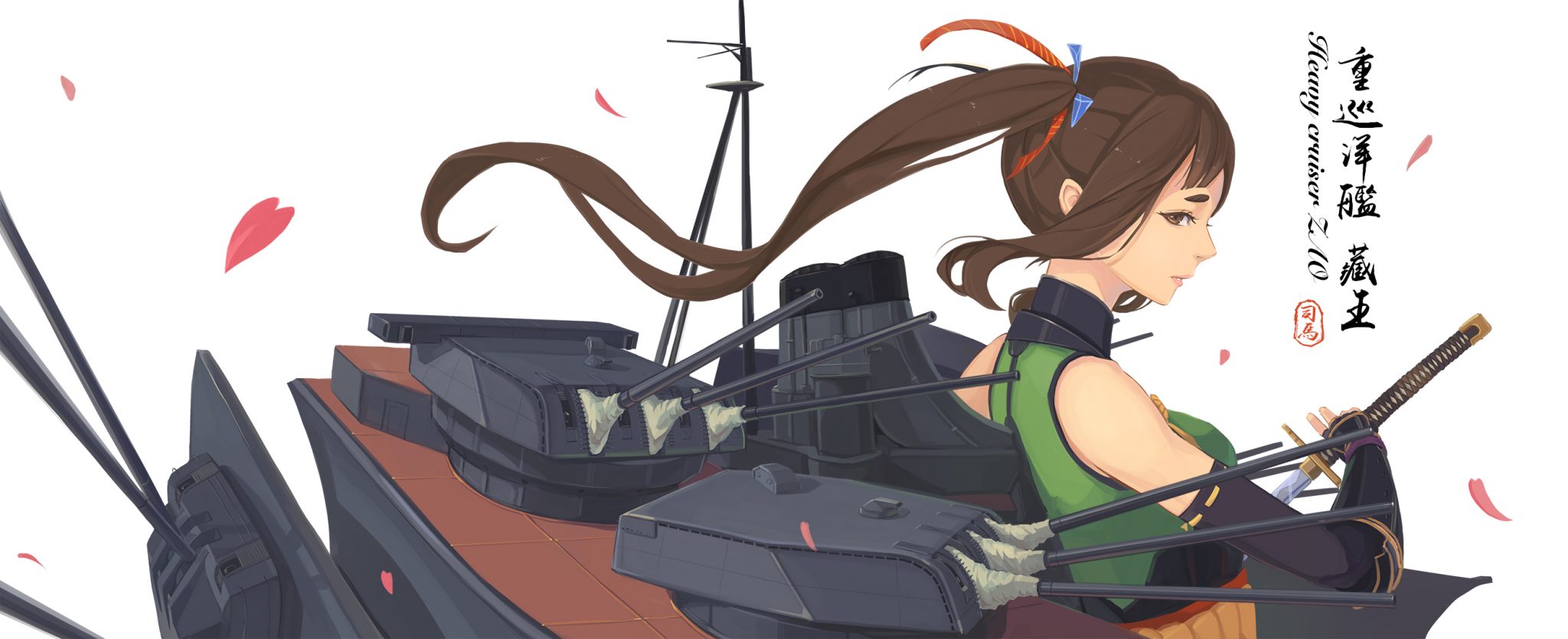“So, these are the American experts?”
A fluorescent light dangled rather lazily from navy blue canvas, illuminating the over-sized tent beneath. The small but tidy field headquarters housed more than a dozen senior officials of the People’s Liberation Army Navy, thought it was obviously not apparent upon first glance.
This field HQ was buzzing with activity. Inside the tent, dozens of aides scurried about with folders and documented messages. The four copiers – solid, if simplistic Chinese craftsmanship – hummed loudly in a corner as two communications officers spoke in hurried whispers into a sextet of ancient-looking phones. If the single security officer standing at the tent’s flap did not blink on occasions, he could easily have been mistaken for a statue.
A number of papers – documents, photos, and reports – lie scattered on top of a collapsible camp table. Two sharply dressed men, one in the service uniform of a PLAN field officer, the other in a dress uniform of the admiralty of the PLAN, were studying the contents intensely.
“Yes, venerable* Qu. The STEC, aiyha, Special Task and Evaluation Command, has sent us their top officers. Looks like they are taking the collaboration very seriously.”
The man in the service uniform begun. His voice was even, but his slow and deliberate pronunciation of each syllable – STEC becoming Si-tai-ke, for example – easily displayed his origins. Two stripes, along with two brightly burnished bronze stars, were displayed proudly on his shoulders. Like his forefathers before him, here was a man who, while educated, was still fundamentally a son of the land.
“It is good that you have worked so hard to prepare all this. I was not expecting Central to approve the visitation so quickly. Is this him?”
“Yes, venerable Qu. His name is Mike Yin. Admiral Yin is the current chief of operations overseeing much of STEC’s operations. From what I know he is a fairly recent appointment, but so far he has shown to have a clear head on his shoulders. The recent de-escalation of the Sweet Melon fiasco is his work as well. At the rate that he is going he will get his second star in no time.”
Qu nodded. The sixty-something vice admiral knew the significance of vitality and youth in positions of responsibility, though he was still a little surprised at just how young this particular officer was.
“If we are to focus on our common goal, it was imperative that someone reigned in the rogue NKT commanders before the situation got out of hand. Venerable Ma, I don’t know if the Americans are here for that reason, but for the sake of regional stability, they have a role to play as well.”
Admiral Qu paused, nodding again in approval as he scanned through a second prepared report. Commander Ma Yunde has been on his staff for the better parts of two decades, and his attentiveness to detail has always been impressive.
“What do you think, venerable Ma? About the current situation, I mean.”
“I have heard – belatedly – of what has happened. Personally, venerable Qu, if you want my opinion, I think Otomo’s losing control. This would not have happened even a year ago.”
Ma is, of course, speaking of the current “head” of the Nihon Kaigun Tokusentai, or the Japanese shipgirl service. The ancient Kensuke Otomo, now approaching ninety-six, has stubbornly resisted all attempts of retirement, forced or otherwise. The Japanese state media may downplay the frequencies of force in their domestic politics, but those who had eyes knew how turbulent it really was.
In no small part due to its own constitution and a series of national policies, the NKT – like everything else – was decentralized. Redundancies and inter-service cross-checks and restrictive command policies has more or less hamstring the shipgirl service, and what would have been an excellent system of checks of balances became a chafing prison. Small wonder that the vast majority of NKT commanders choose to act independently, often against the direct letter of the law.
“We’ve increased security as best as we could, but I think they’ve put him on this purposeless hunt on purpose. My guess is that that’s why STEC’s bringing in shipgirls as well. If I am understanding their reports to us correctly, even pulling one away from their mission is a considerable challenge.”
Otomo, who is currently observing the island landings, had once wryly commented to him that the current situation of the NKT resembled the Sengoku Jidai – a lawlessness period of history known as the warring states. His commanders and sub-commanders are like daimyo, and the shipgirls samurai retainers. Increasingly he is concerned that the de-centralized and de-nationalized nature of not only the NKT but the Japanese military as a whole is creating subfactions within factions, and enabling personal loyalties and connections to be made above the good of Japan and her people. Whoever had the greatest amount of vassals, or made the greatest number of alliances, would be the de-facto leader of the NKT.
“That may very well be the case, but I do not think they would dare moving on Otomo so long as Kaga is around.”
Prior to Qu’s involvement with China’s own shipgirl program, Otomo’s survival – given his fairly moderate, nationalist, but nonetheless peace-oriented views often made him a favored target of both ends Japanese politics. How the old man had evaded assassinations had always been a mystery to him. It wasn’t until he joined China’s own shipgirl program that Qu learned about Otomo’s guardian: the shipgirl named Kaga.
Laconic and seemingly emotionless, Kaga nonetheless made a powerful impression on anyone who had the opportunity to hear her speak. The carrier girl carried herself with a quiet sort of authority that radiated from her every word. Her single-minded obsession with integrity made her predictable, yes, but it’s what makes her respectable to both friend and foe. Integrity, too, was the reason why she chose to serve and protect Otomo. For whatever Otomo’s weaknesses may be, inconsistency was not one of those weaknesses. The man had a vision for Japan, and his vision was one that everyone – including the most ardent Chinese nationalists – could live with.
“Operational details are classified according to the NKT, but that’s the problem, venerable Qu. Kaga is missing in action, and has been missing in action for the last three months.”
Qu’s brows furrowed even as he continued to read the reports.
“Otomo is defenseless?”
Commander Ma shook his head.
“Not to my knowledge. STEC has CV-2 in plainclothes on that ship.”
CV-2. CV-2. Admiral Qu’s brows furrowed even more. Sounds familiar, but –
“Lexington. Likes to dye her hair blue. Fairly solidly built. Tall. Very professional and serious personality.”
The lightbulb went on. Admiral Qu’s face broke into a wide grin.
“Ah, of course! The nice young lady who bailed out that annoying tech officer!”
“Yes, venerable Qu, that’s her. The “annoying tech officer” is back too. It’s Dr. Andrea L. Lawrence. Turns out he’s ah, STEC’s “premier diplomat, negotiator, researcher, mechanic, scientist, engineer, and scholar-at-large,” and he will actually be the one instructing our own technology officers during the course of their stay.”
Qu snorted, reaching for Andrea’s folder nearby and brushing aside a stack of “Incident reports.” He had a personal suspicion that if Andrea did not accidentally blow himself up in an experiment somewhere, he would probably become a popular personality given STEC’s own recent outreach efforts within America.
“Such confidence! Dr. Lawrence will be better escorted this time?”
“Yes, venerable Qu. Admiral Yin has made sure of that.”
Commander Ma pushed a third folder forward.
“Lieutenant Colonel Leon Harris, United States Marine Corps. He currently leads the Special Operations Force based on Avalon. As I said, venerable Qu, I think the Americans are serious about this collaboration. I think the Japanese would be, too, if they can sort their own troubles out.”
“Well, let’s show them that China is serious about this collaboration too. Where is venerable Lian? He should be here by now, and we still haven’t heard back from central regarding specifics in terms of actual physical arrangements. It would be a bad loss of our face if we came across as unprepared or uneducated.”
“The Zhengwei** called about twenty minutes ago. His vehicle threw a tire and they’re trying to get it fixed.”
“ETA?”
Qu didn’t even look up as he opened another report.
“Two, maybe three hours?”
“Then, venerable Ma, it seems that we need to work doubly as hard. Give me ten minutes and I will have a draft prepared. We should at least get the agenda done before venerable Lian gets here.”
*Venerable is a direct translation of a Chinese colloquialism, “Lao”, which is used as a sign of respect (as well as to denote closeness) between friends or colleagues that are not young people. Yunde addressing Admiral Qu, for instance, would be Lao Qu (literally “Old Qu” in Chinese), and I have chosen venerable because in English, this term conveys both age and respect at the same time.
** Zhengwei. Political officer (commissar in the USSR).

